Welcome to the new Everyman’s Library website. Everyman was founded in 1906 by Joseph Dent, a visionary publisher. He promised ‘infinite riches in a little room’.
EVERYMAN'S LATEST RELEASES
Update 6th March 2025 You can now find our new page at https://www.penguin.co.uk/about/publishing-houses/everyman
Update: 27th November 2024 We are currently updating our website, please visit the Penguin website for current titles and prices.
We are sorry for any inconvenience caused.
https://www.penguin.co.uk/series/EVLC/everymans-library-classics
2023 was an eventful year for Everyman’s Library.
In the autumn we celebrated the printing of the 25th millionth Everyman book, Virginia Woolf’s Orlando, since the 1991 revival of Everyman. For over thirty years we have printed with the same printers. Our cream-wove, acid-free paper - from which the lignin that yellows pages over time has been removed - comes from an Austrian paper mill that, amazingly, has belonged to only two families since its founding in 1583 (just a hundred years or so after Johannes Gutenberg's invention of moveable type).
We were thrilled to publish Nadezhda Mandelstam’s Hope Against Hope, with an introduction by the exiled Russian poet Maria Stepanova, The Best of Tagore, Colson Whitehead’s brilliant The Intuitionist and a volume of Uyghur Poems, an anthology celebrating two thousand years of Turkic poetic tradition – a culture now cruelly under threat.
2024 has a comparably rich programme. 200 years since Lord Byron’s death at Missolonghi we published Byron’s Travels, an anthology of his poems, letters and journals, selected by Professor Fiona Stafford. This historic title joins works by Bulgakov, Chester Himes, Sandra Cisneros and Pushkin, all published in the spring. Our autumn schedule will include The Patrick Melrose Novels by Edward St. Aubyn, Virginia Woolf’s A Room of One’s Own and James Baldwin’s essays, The Fire Next Time, Nobody Knows My Name, No Name in the Street and The Devil Finds Work.
Also in 2024, Music Stories, including works by Kazuo Ishiguro, Vikram Seth and Ian McEwan will join our Pocket Classics series.
German Romantic Poets and Hanshan: Cold Mountain Poems will be the latest additions to our Pocket Poets.
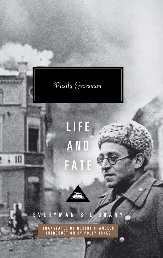
Written in the 1950s, and suppressed in the USSR until 1988 – with the KGB destroying all Russian manuscripts, and even the typewriter ribbon on which it was written – Vasily Grossman’s epic saga, the War and Peace of the Soviet twentieth century, is an astounding work of literature and a devastating historical and political documentary on both Soviet Communism and German Nazism.
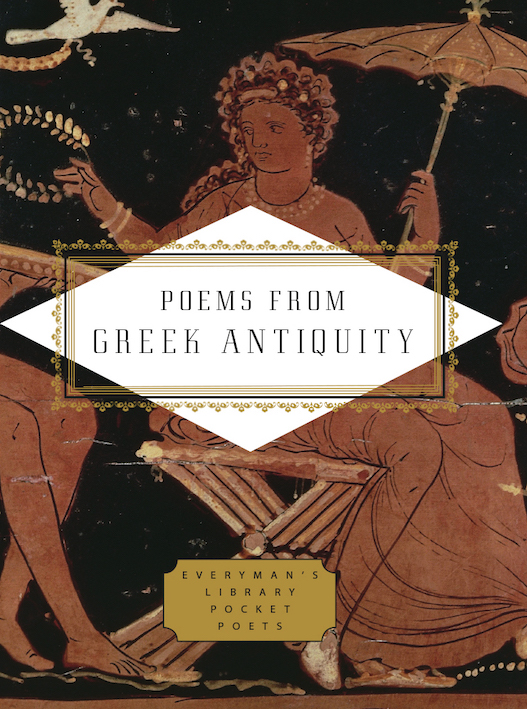
There is a great deal more to Greek poetry than the Iliad or the Odyssey. Shorter masterpieces abound, as the lyrical and elegiac poems, odes, and epigrams in this volume testify. Here are selections from the early Greek poets, including Hesiod, Pindar and Bacchylides, Alcaeus and Sappho; from the Alexandrian poets Theocritus, Bion, Apollonius of Rhodes, and many more. A generous section is devoted to poems from the celebrated Greek Anthology, which spans a thousand years from the Classical to the Byzantine age, and another to the Anacreontea, a delightful collection of odes on the pleasures of drink, love, and beauty. This historical anthology draws on nearly five hundred years of English translations, from Elizabethan and Jacobean England and the great age of translation presided over by George Chapman, to the late twentieth century and modern versions by James Michie, Fleur Adcock and Robert Fagles. Editor Paul Quarrie has mustered an army of translators: poets major and minor jostle with Regius Professors of Greek, professional writers and translators with accomplished amateurs including teachers, librarians, aristocrats, diplomats, civil servants, bankers, soldiers and clergymen. The editor provides an informative preface, section introductions, and biographies of translators in which biographical detail is set off by colorful anecdote.
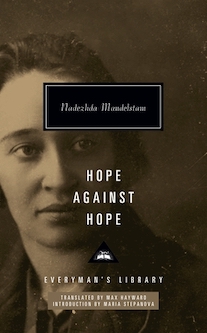
A harrowing yet uplifting account of Stalin's persecution of the Russian intelligentsia in the 1930s, and of one man - Osip Mandelstam (1891-1938), whose poetry, in spite of the unfolding tragedy of his life, preserved its unique creative gaiety. Nadezhda and Osip Mandelstam married in 1922. Nadezhda's memoir covers their last four years together. She begins in Moscow in May 1934 with the knock on the door at one o'clock in the morning, and her husband's arrest by the secret police for composing a satire of Stalin. She tells of his imprisonment, interrogation and exile to the Urals, where she accompanied him, and where he wrote his last great poems; his release and return to Moscow, only to be entrapped, rearrested and sentenced to hard labour in Siberia; of her own efforts to secure his release and to save his manuscripts (and to memorize all his poems in case she could not); of her discovery of the truth about his death in a transit camp near Vladivostock. For all its grim subject matter, it is a story of courage in adversity, and even humour finds a place.
Nadezhda means 'hope' in Russian, and Hope against Hope is one of the greatest testaments to the value of literature and imaginative freedom ever written. It is also a love story that relates the daily struggle to keep both love and art alive in the most desperate circumstances. After years of circulating secretly in the Soviet Union it was published in the West in 1970, and has since achieved the status of a classic.
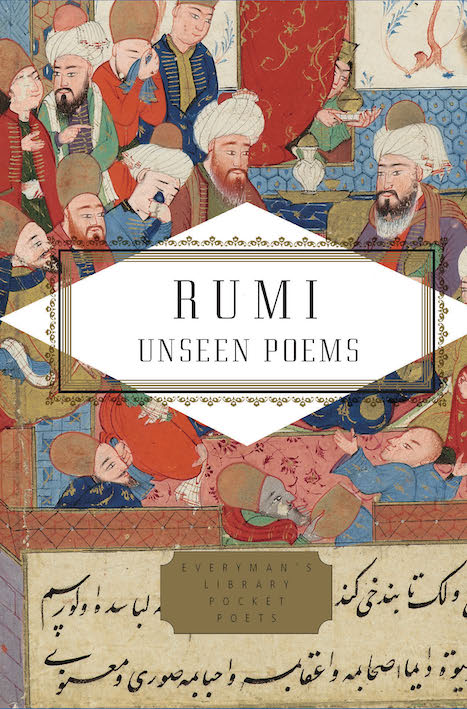
Rumi: Unseen Poems – the second volume of Rumi in the Everyman Pocket Poet series – is a treasury of poems which have never been translated before, researched and translated by Rumi biographer Brad Gooch and the Iranian writer Maryam Mortaz. The 13th-century Persian poet Rumi was trained in Sufism, a mystic tradition within Islam. He founded the Mevlevi Order, often known as the Whirling Dervishes, who use dance and music as part of their spiritual devotion. His poetry combines the sacred and the sensual, expressing both rapturous divine love, and aching human love for his companion and teacher, Shams of Tabriz. It has long been popular in the West, never more so than in the last twenty-five years, when a new wave of free translations introduced him to an ever-widening audience.
However, some of these recent translations have been more in the nature of interpretations by writers who are not Persian speakers. Cultural and Islamic references central to an understanding of Rumi's poetry have been toned down or omitted. And so vast was Rumi's output that earlier scholarly translators were obliged to be selective, leaving a rich vein of verse still unmined. From this Gooch and Mortaz have made a selection of ghazals (short lyric poems) and rubaiyat (quatrains), aiming in their own translations to achieve fidelity to the originals while preserving all Rumi's lyric exuberance.
This book makes a perfect companion to the first Everyman volume of Rumi, which presents the very best of the 20th-century translations.
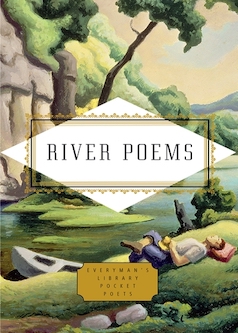
Rivers were the arteries of our first civilizations - the Tigris and Euphrates of Mesopotamia, India's Ganges, Egypt's Nile, the Yellow River of China - and have nourished modern cities from London to New York, so it is natural that poets have for centuries drawn essential meanings and metaphors from their endless currents.
English poets from Shakespeare and Dryden, Wordsworth and Byron to Ted Hughes, John Betjeman and Alice Oswald; Irish poets - Eavan Boland, Seamus Heaney, Paul Muldoon, to name but a few; Scottish and Welsh poets from Henry Vaughan and Robert Louis Stevenson to Robin Robertson and Gillian Clarke. A whole raft of American poets from Whitman, Emerson and Emily Dickinson to Langston Hughes, Mary Oliver, Natasha Trethewey and Grace Paley. Folk songs. African-American spirituals. Poems from ancient Egypt and Rome. From medieval China and Japan. And a truly international selection of modern poets from Europe (France, Italy, Russia, Serbia), India, Africa, Australia and South and Central America, all combining in celebration of the rivers of the world. From the Mississippi to the Limpopo. From the Dart to the Danube.
Plunge in.
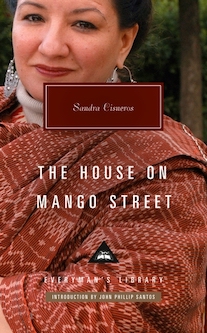
The House on Mango Street is one of the most cherished novels of the last fifty years. Readers from all walks of life have fallen for the voice of Esperanza Cordero, growing up in Chicago and inventing for herself who and what she will become. "In English my name means hope," she says. "In Spanish it means too many letters. It means sadness, it means waiting."
Told in a series of vignettes-sometimes heart breaking, sometimes
joyous-Cisneros's masterpiece is a classic story of childhood and
self-discovery. It is also one of the greatest neighbourhood novels of all time. Like Sinclair Lewis' Main Street or Toni Morrison's Sula, it makes a world through people and their voices, and it does so in language that is poetic and direct. Acclaimed by critics, a staple in schools, translated into dozens of languages, this gorgeous coming-of-age novel is a celebration of the power of telling one's story and of being proud of where you come from.
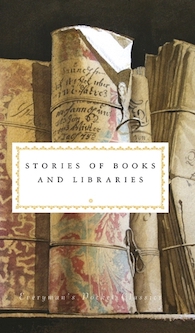
Here are libraries modest, mobile, mystical (Borges of course) and magical (Helen Oyeyemi's enchanting 'Books and Roses'); public and private, provincial and prestigious. Little that happen in Elizabeth McCracken's eccentric library did not happen in real life - even down to the murder; and it is rumoured that on 3 June 1997 the British Museum Reading Room really was visited by the ghost of Max Beerbohm's obscurest of poets, Enoch Soames...
Fiction and reality merge in Cortazar's 'A Continuity of Parks'. Characters step out of their books in Fay Weldon's 'Lily Bart's Hat Shop', while Jasper Fforde's Jurisfiction operatives enter Wuthering Heights to deliver a Rage-Counselling session. Charles Lamb muses on the annoying book-borrowing habits of Samuel Taylor Coleridge; the teenage Teffi is overawed by Tolstoy; Helene Hanff in Manhattan launches her famous correspondence with a London antiquarian bookshop at 84 Charing Cross Road.
Reading, as the Queen informs an appalled private secretary, is 'untidy, discursive and perpetually inviting'. And also, of course, a lot of fun. Sit comfortably, then, and begin.
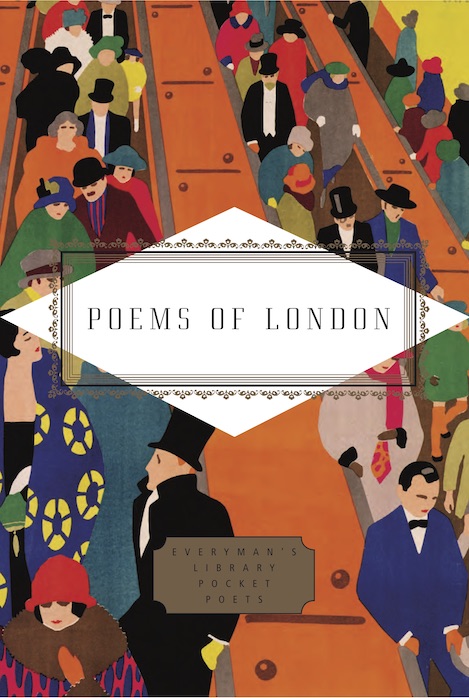
Poems of London brings together a remarkably wide range of poems inspired by the storied city, from its teeming medieval streets to the multicultural metropolis it is today.
The pantheon of classic English poets, from Shakespeare and Donne to Wordsworth and Blake to T. S. Eliot and Ted Hughes, provide their views of London alongside tributes by notable visitors including Arthur Rimbaud, Samuel Beckett, and Sylvia Plath. Here, too, are poetic contributions by an array of immigrants and the children of immigrants, including Linton Kwesi Johnson, Fleur Adcock, Patience Agbabi, and Booker Prize-winner Bernardine Evaristo. All the famous sights of London, from the Thames to the Tower, are touched on in this vibrant collection, and denizens of its busy streets, ranging from princes to pub-goers to pickpockets, wander through these pages. The result is an enthralling portrait of an endlessly varied and fascinating place.
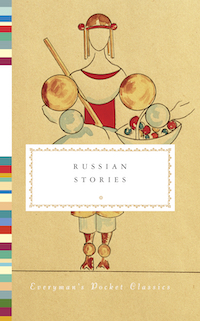
Two centuries of short stories by twenty-five titans of Russian literature, from Pushkin and Gogol to Tatyana Tolstaya and Svetlana Alexievich, in the beautifully designed Pocket Classics series.
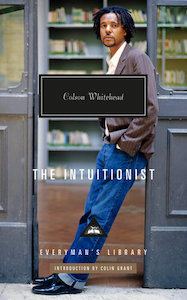
In an unnamed city - a hardboiled pre-Civil Rights New York sort of city - heroine Lila Mae has succeeded in becoming the very first Black female elevator inspector. In Whitehead's darkly comic otherworld, this is a job imbued with an almost mystical significance. But the illustrious Department of Elevator Inspectors is in crisis, bitterly divided between the Empiricists (check the machinery) and the Intuitionists (tune in to the vibes). Lila is an Intuitionist and so much better at her job than anyone else that surely it must be those 'good-old-boy' Empiricists who have set up the serious accident which occurs on her watch - and just before the Departmental elections, too. Lila sets out to clear her name (and discover the secret formula of the Perfect Elevator at the same time), and the author keeps us on our toes guessing the outcome as he cleverly tweaks and twists his plot, catching everybody out. At the same time the story is almost certainly an allegory but of what, exactly, readers may work out for themselves. A teasing, challenging and entertaining read.
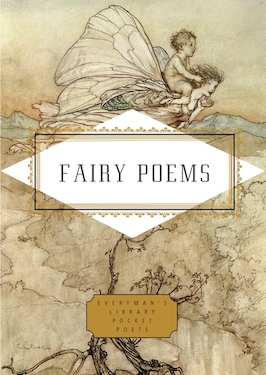
Elves, changelings, leprechauns, pixies, brownies and sprites; England's Queen Mab, France's Melusine, Scandinavian nixies and Scottish selkies: these magical creatures are sometimes mischievous, sometimes dangerous, always enchanting. This collection brings together a diverse array of literary fairies: here are Spenser's Faerie Queene, Shakespeare's Titania, Keats's Belle Dame Sans Merci, of course, but also Rimbaud's 'Fairy', Goethe's 'Erl-King', Denise Levertov's 'Elves', Sylvia Plath's 'Lorelei', Christopher Okigbo's 'Watermaid', Neil Gaiman's 'The Fairy Reel' and Patience Agbabi's changeling boy ('The Double').
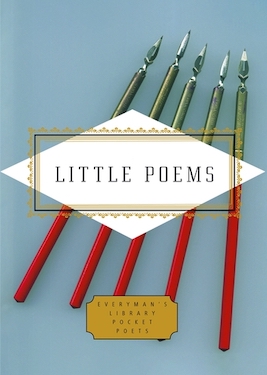
Dip into this inspired assortment of concise masterpieces, and draw out - a fragment of Sappho from ancient Greece, a perfect haiku from Japan; a brief nature poem by John Clare, Robert Frost, Ted Hughes or Boris Pasternak; a compact love poem by Alexander Pushkin or Anne Bradstreet, Robert Herrick or Carol Ann Duffy; a miniature story by Hardy, Rumi or Roethke; a pithy meditation by Wang Wei, Emily Dickinson, Tennyson or Lorca. Dip again, and discover the compressed wit of Dorothy Parker and Ogden Nash; contemporary poets Simon Armitage and Moniza Alvi at their most succinct; short poems in very odd shapes from Apollinaire and Vaclav Havel ... So few lines, so much variety: epitaphs and epigrams; couplets and quatrains; lyrics, limericks and lullabies - go on, dip again.
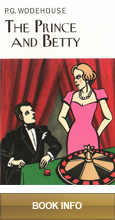
The Prince and Betty
P G Wodehouse
A classic musical comedy plot turned into a novel, The Prince and Betty is the story of a man who gives up everything for his girl.
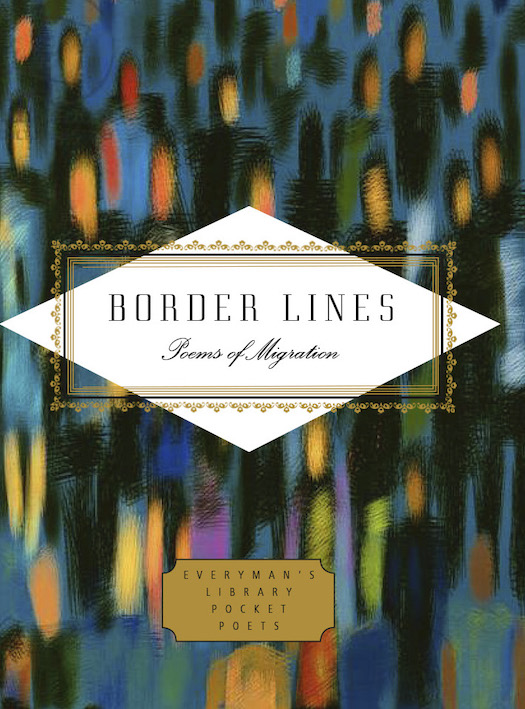
In this remarkable collection – the first of its kind – poets from around the world give eloquent voice to the trials, hopes, rewards and losses of migration. Each year, millions join the ranks of intrepid migrants who have reshaped societies throughout history. The movement of peoples across borders – whether forcible or voluntary – brings with it emotional and psychological dislocations. Whatever their circumstances, these travellers share the challenge of adapting to being strangers in a strange land. Border Lines brings together more than a hundred poets representing more than sixty nations - Imtiaz Dharker, Ruth Padel, Bernardine Evaristo, Derek Walcott, Mahmoud Darwish, 'Dreadlock Alien', Dunya Mikhail and Hédi Kaddour, to name but a few. A monument to courage and resilience, Border Lines offers an intimate and uniquely global view of the experiences of immigrants in our rapidly changing world.
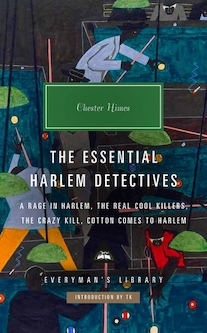
A friend and contemporary of Richard Wright and James Baldwin - and every bit their equal - Chester Himes was the acclaimed author of literary novels, stories and essays, as well as the classic crime fiction series for which he is best known, featuring detectives Coffin Ed Johnson and Gravedigger Jones.
Himes wrote nine novels in the Harlem Detectives series, and in these four popular, accomplished instalments, his cold, wise-cracking sleuths are thrown into a brutal, murderous world peopled with conniving con men, gut-toting gangsters and opium-smoking preachers. Himes's vision of Harlem's criminal underground, enriched by deft plotting and scintillating dialogue, is both riotous entertainment and penetrating enquiry into the fraught tensions of race in postwar America.
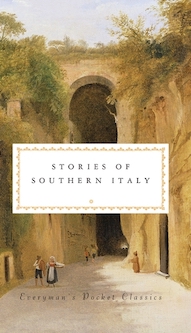
Woven through all these tales are the unique histories and mythologies of the regions of Southern Italy, encompassing Sicily, Calabria, Cantania, Basilicata, Apulia and Campania. Theocritus, Virgil and Ovid evoke a Sicily populated by Cyclopes and sea monsters, while in an excerpt from The Smile of the Unknown Mariner Vincenzo Consolo depicts the island in 1860, on the frontline in Italy's war of independence. The South's legendary legacy of brigandage and organized crime enlivens the stories of Leonardo Sciascia, Carlo Levi and Joseph Conrad. Curzio Malaparte and Norman Lewis immortalize the wreckage of Naples and the indomitable spirit of its people during World War II, and Elena Ferrante paints a spectacular portrait of a poor but vibrant Neapolitan neighbourhood in an excerpt from the bestselling My Brilliant Friend. Collectively, these entertaining tales plunge readers into the sometimes harsh and troubled, but always seductive and vital world of Italy's Mezzogiorno
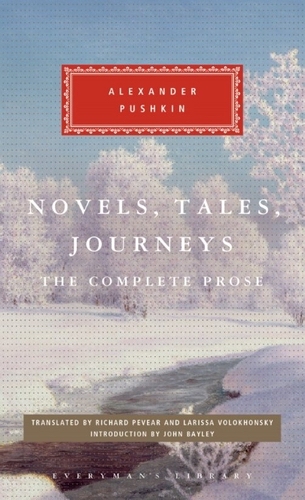
The archetypal Romantic, killed in a duel in 1837 at the age of 37, Alexander Pushkin was effectively the founder of modern Russian literature. Though famous as a poet, he was equally at home in prose, and this volume includes all his short fiction, as well as unfinished sketches and fragments. Here of course are his masterpieces, 'The Queen of Spades', Pushkin's ironic take on both the supernatural and the society tale, the terse, deadpan Tales of Belkin, often humorous yet imbued with deep understanding of human nature, and his unsurpassable novella, The Captain's Daughter, which, informed by his meticulous research into the Pugachev Rebellion against Catherine the Great, is a perfect combination of folk epic, historical narrative and romance. Other works include the richly comic 'A History of the Village of Goriukhino', the imaginative historical fiction 'The Moor of Peter the Great' (based on the life of the author's own great-grandfather. Pushkin was particularly proud of his African ancestry), and 'Journey to Arzrum', the fascinating autobiographical account of his (unauthorized, and greatly displeasing to the Tsar) travels in the Caucasus at the time of the 1828-9 Russo-Turkish war.

The romantic forested landscape of southwest Germany is the setting for the birth of a friendship that will haunt sixteen-year-old Hans Schwarz for the rest of his life. Hans is Jewish, the son of a doctor who is confident that the rise of the Nazis is only 'a temporary illness' afflicting his beloved country. Hans's new classmate, Konradin von Hohenfels, is a dazzling young aristocrat whose mother keeps a portrait of Hitler on her dressing-table. Hans is immediately drawn to Konradin, and thrilled when a close bond forms between them, forged by common interests that set them apart from the other boys. But their loyalties are soon tested in ways they could not have imagined. Three decades later, from the vantage point of New York City, Hans once again confronts this life-shaping episode from his youth, through a stunning revelation that he stumbles upon by chance. In its story of friendship undone by History, Reunion combines the explosive compression of a fable with the emotional depth of an epic novel many times its length.
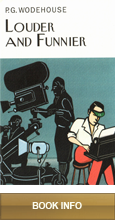
Louder and Funnier
P G Wodehouse
In these articles first produced for magazines and substantially rewritten for book publication, Wodehouse reveals his enduring brilliance as a comic writer of topical essays.
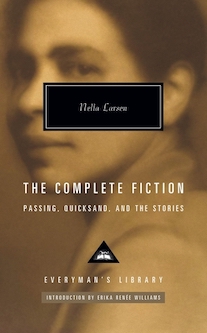
Throughout her short but brilliant literary career, Nella Larsen wrote piercing dramas about the black middle class that featured sensitive, spirited heroines struggling to find a place where they belong. Passing is a disturbing story about the unravelling lives of two childhood friends, one of whom turns her back on her past and marries a white racist. Just as disquieting is the portrait in Quicksand of biracial Helga Crane, who is unable to escape her loneliness no matter where and with whom she lives. Race and marriage offer few securities here or in the other stories in this compulsively readable collection, rich in psychological complexities and imbued with a vibrant sense of place - be it 1920s Harlem, Chicago, or Copenhagen.
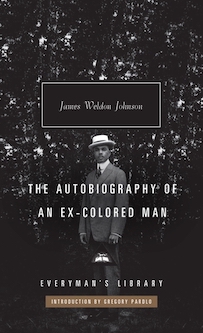
First published anonymously in 1912, this resolutely unsentimental novel gave many white readers their first glimpse of the double standards - and double consciousness - experienced by Black people in modern America. Republished in 1927, at the height of the Harlem Renaissance, with an introduction by Carl Van Vechten, The Autobiography of an Ex-Colored Man became a pioneering document of African-American culture and an eloquent model for later novelists ranging from Zora Neale Hurston to Richard Wright and Ralph Ellison.
Narrated by a man whose light skin enables him to 'pass' for white, the novel describes a journey through the strata of Black society at the turn of the century - from a cigar factory in Jacksonville to an elite gambling club in New York, from genteel aristocrats to the musicians who hammered out the rhythms of Ragtime. The Autobiography of an Ex-Colored Man is a complex and moving examination of the question of race and an unsparing look at what it meant to forge an identity as a man in a culture that recognized nothing but colour.
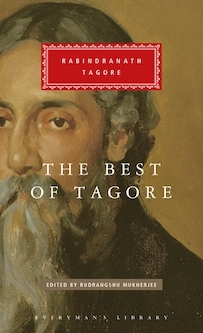
Rabindranath Tagore published his first volume of poetry at the age of thirteen. He went on to become a towering figure in Bengali and world literature.
Tagore was remarkably productive over his long life; his complete works fill 32 large volumes and include 60 collections of verse and more than 2,000 songs, two of which have become the national anthems of India and of Bangladesh. In both his poetry and prose he was a great innovator, continually breaking with tradition, endlessly changing his own style, so this volume is full of variety and surprise. If lyric poetry was the anchor of Tagore's creativity, he also wrote devotional, satirical, humorous and even nonsense verse.
His themes were as varied as his forms - love, the beauty of nature; philosophy, politics, his hopes and fears for his country, and for the future of mankind. In his fiction he showed profound sympathy for the perspectives of women, children and the poor. This selection - a substantial 900+ pages - offers a representative overview of his work, including his best-known novel, The Home and the World, and his best-known play, Red Oleander, as well as many short stories, novellas, essays, poems and songs.
Rudrangshu Mukherjee has drawn on the work of various translators, from early renderings by Surendranath Tagore, the author's nephew, to modern ones by William Radice, Kaiser Haq and Madhuchchhanda Karlekar. Tagore translated some of his work himself, and all the essays and lectures were composed in English

An entertaining anthology of poems from antiquity to 2020, No Place Like Home explores what home means to us – a subject which has become all the more topical since lockdown – and turns a number of sentimental homely clichés on their heads in the process.
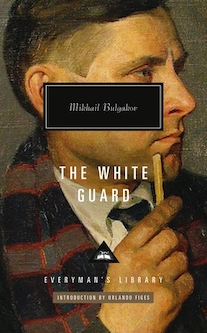
Kiev - Kyiv - is in chaos. Russia has withdrawn from World War I but the Germans have set up a puppet government in Ukraine. Civil war rages: the Bolsheviks have seized power in Russia, but the anti-revolutionary White Guard who have fled to Ukraine, are rallying to resist. In the meantime, Ukrainian nationalists are camped outside the capital, and a Red army is on its way to bring everyone to heel. While all this is going on, the Turbin family try to eke out their existence in Kyiv and discuss what they should do. They are exactly the sort of family - monarchist intelligentsia - for whom the future looks particularly menacing.
Bulgakov's brilliant and evocative prose brings the city and the moment unforgettably to life and sheds some fascinating light on the complex interwoven histories of Ukraine and Russia.
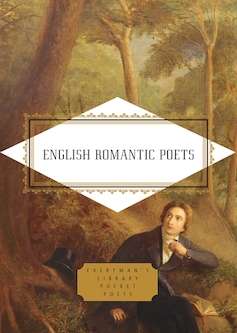
'All good poetry is the spontaneous poetry of powerful feelings' -William Wordsworth
No generation of poets has felt more powerfully and enduringly than the Romantics of the late eighteenth and early nineteenth centuries. In this indispensable volume, Sir Jonathan Bate - prizewinning biographer of Wordsworth, Keats and John Clare - brings together the most loved poems of the age, together with many forgotten gems. Alongside classics such as Coleridge's 'Kubla Khan' and 'Frost at Midnight', the odes of Keats and generous selections from Wordsworth's Lyrical Ballads and The Prelude, the reader will discover the wit of Byron, the wildness of Blake, the passion of Shelley, a wealth of nature poems by Clare, and the distinctive voices of women Romantics such as Charlotte Smith, Mary Robinson, Felicia Hemans, Dorothy Wordsworth and Letitia Landon.
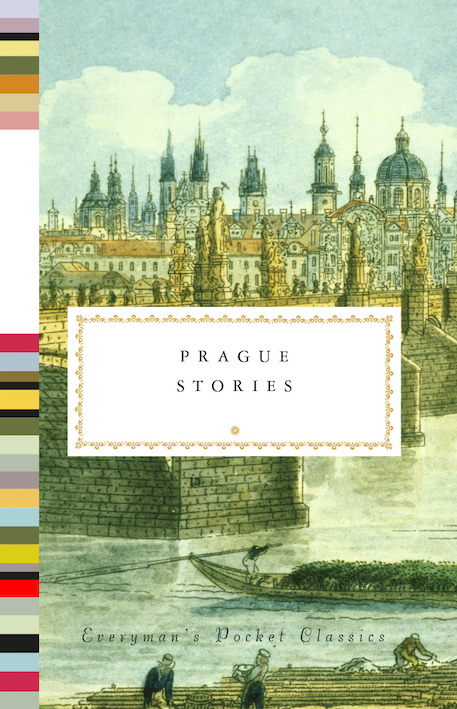
The Golden City of Prague has for many centuries been the intellectual centre of the western world. The writers collected here range from the early nineteenth century to the present and include both Prague natives and visitors from elsewhere. Here are stories, legends, and scenes from the city's past and present, from the Jewish fable of the Golem, a creature conjured from clay, to tales of German and Soviet invasions. The international array of writers ranges from Franz Kafka to Ivan Klíma to Bruce Chatwin, and includes the award-winning British playwright Tom Stoppard and former American Secretary of State Madeleine Albright, both of whom have Czech roots. Covering the city's venerable Jewish heritage, the glamour of the Belle Époque period, World War II, Communist rule, the Prague Spring, the Velvet Revolution and beyond, Prague Stories weaves a remarkable selection of fiction and nonfiction into a literary portrait ofa fascinating city.
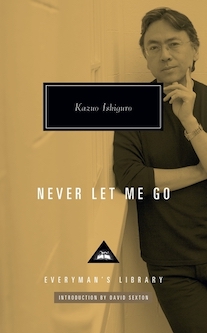
As children, Kathy, Ruth and Tommy attended an exclusive boarding-school in the English countryside. Idyllic in some ways yet vaguely sinister, 'Hailsham' was a place of intense friendships, mysterious rules, and 'guardians' who constantly reminded the students how special they were. Now thirty-one, Kathy looks back on their shared past and tells how she and her friends gradually came to understand the shocking reason for the careful nurturing they had received. An affecting meditation on friendship, love and mortality.
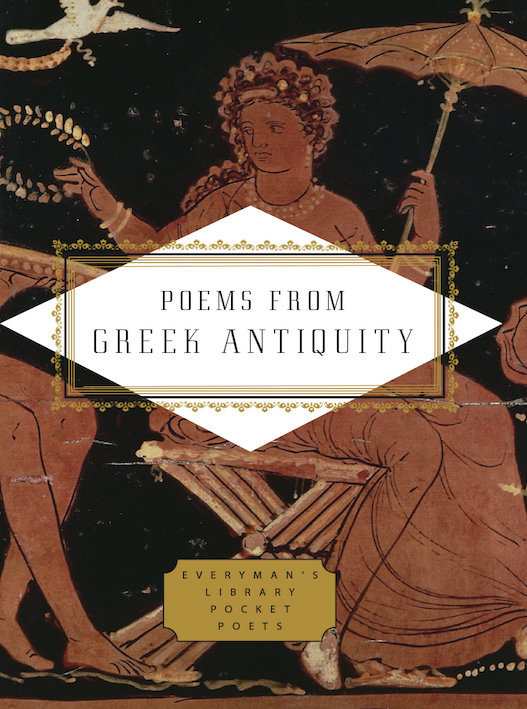
There is a great deal more to Greek poetry than the Iliad or the Odyssey. Shorter masterpieces abound, as the lyrical and elegiac poems, odes, and epigrams in this volume testify. Here are selections from the early Greek poets, including Hesiod, Pindar and Bacchylides, Alcaeus and Sappho; from the Alexandrian poets Theocritus, Bion, Apollonius of Rhodes, and many more. A generous section is devoted to poems from the celebrated Greek Anthology, which spans a thousand years from the Classical to the Byzantine age, and another to the Anacreontea, a delightful collection of odes on the pleasures of drink, love, and beauty.
This historical anthology draws on nearly five hundred years of English translations, from Elizabethan and Jacobean England and the great age of translation presided over by George Chapman, to the late twentieth century and modern versions by James Michie, Fleur Adcock and Robert Fagles. Editor Paul Quarrie has mustered an army of translators: poets major and minor jostle with Regius Professors of Greek, professional writers and translators with accomplished amateurs including teachers, librarians, aristocrats, diplomats, civil servants, bankers, soldiers and clergymen. The editor provides an informative preface, section introductions, and biographies of translators in which biographical detail is set off by colorful anecdote.
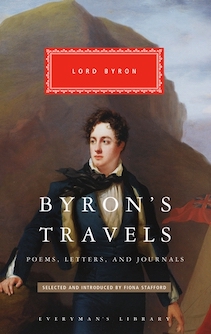
In Lord Byron's lifetime, details of his travels were widely known through poems set in different countries, ranging from his homes in Scotland and England, through Europe and the Middle East, to the South Pacific and into extra-terrestrial realms. At the same time, a much more personal story was being shared with friends and family. Even when divided from those whose company he most enjoyed, Byron continued to share his thoughts and feelings about wherever he happened to be. His compulsive letter-writing reveals a strong desire to reach across space, to connect and reconnect with those elsewhere. While his memoirs did not survive the ceremonial posthumous bonfire at 50 Albemarle Street, many of Byron's correspondents treasured every word in their possession. This means a remarkable legacy has been preserved in letters that still seem as alive with conversational energy as when they were dashed off more than two hundred years ago. Through Byron's letters and journals, we are still able to become mental travellers, transported across time and space by this brilliant, mercurial, magnificent and often maddening writer.
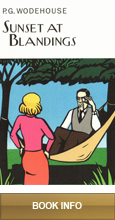
Sunset at Blandings
P G Wodehouse
In Wodehouse's final novel, unfinished at his death, the author returns to his favourite part of England.
There may be trouble in the air, but at Blandings Castle it is always summer, and the powers of darkness are always ultimately defeated.
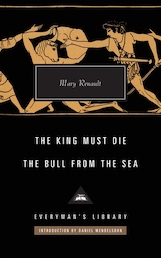
In two remarkable historical novels, Mary Renault fashions from the myth of Theseus a convincingly flawed hero and weaves a thrillingly plausible account of the Labyrinth and the infamous Minotaur.
The King Must Die follows the young Theseus as he discovers that his true father is the King of Athens, and volunteers to join the annual tribute of Athenian girls and youths sacrificed to a bull-worshipping cult on the island of Crete. Trapped in the labyrinthine palace of King Minos, Theseus enlists the help of high priestess Ariadne in a daring plan to free his people.
The Bull From the Sea begins after Theseus's triumphal return to Athens. He is now king, but his confidence will be shaken by a life-changing encounter with the queen of the Amazons, the birth of a son who will insist on choosing his own path, and the tragic results of his wife's treachery.
Renault's deep knowledge of the Greek world, her sure grasp of psychology and genius for inspired speculation bring the distant world of the legendary past enthrallingly to life.
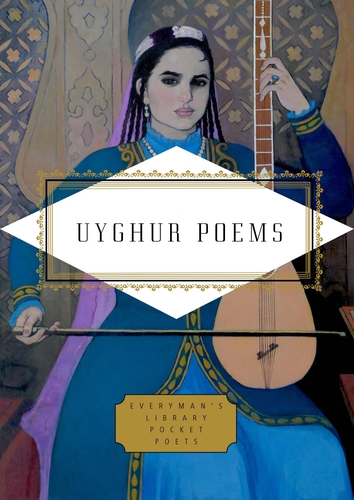
The Uyghur people of Central Asia have a long and distinguished tradition of poetry - indeed, their first oral epic was circulating as early as the 2nd century BCE. In the medieval period Sufi poetry flourished, embracing Persian forms such as the ghazal, which spoke eloquently of beauty, love, loss and separation. A major poet, Alshir Navayi (1441--1501) fully established classical Turkic or Chagatai as a perfect vehicle for poetic expression. Some contemporary poets continue to find inspiration within the traditional forms, while others experiment with a freer style of verse.
Uyghur poetry reflects the magnificent natural landscapes where the Uyghurs have lived for two millennia - endless steppes, soaring mountain ranges and mysterious deserts, crossed by the historic Silk Road. It is also shaped by their turbulent past, caught between warring empires or marauding warlords - and their deeply troubled present.
The Uyghurs form a minority in China, where the government is now making a systematic attempt to erase their language and culture. Many intellectuals have been imprisoned, and many poets are now writing from exile, including the editor and translator of this volume, Aziz Isa Elkun, who lives in London. Uyghur Poems is not only a celebration of an ancient and vibrant poetic tradition, but also a vital witness to a culture under threat.
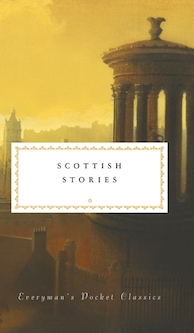
Scottish Stories is a treasury of great writing from a richly literary land, where the short story has flourished for over two centuries. Here are chilling supernatural stories from Robert Louis Stevenson, Eric Linklater and Dorothy K. Haynes; side-splittingly funny stories from Alasdair Gray and Irvine Welsh; a stylish offering from urban realist William McIlvanney. Iain Crichton Smith evokes the Gaelic-speaking highlands, George Mackay-Brown the Orkney islands, Andrew O'Hagan working-class Glasgow; while Leila Aboulela, originally from Sudan, ponders the relations between colonizers and colonized from her home in Aberdeen. Though there is no one 'Scottishness' that binds the authors together, writes editor Gerard Carruthers, each has a Scottish footprint or accent. And perhaps more importantly, all are masters of their form.
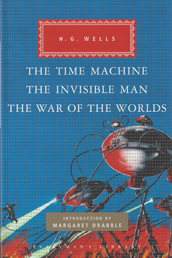
adr
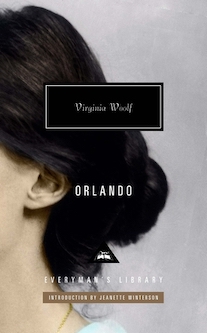
The Lord Orlando's country seat has 365 rooms. An exquisitely beautiful youth, he is a favourite of the ageing Queen Elizabeth and enjoys all that Court and tavern have to offer. He falls passionately in love with the intriguing Sasha, an androgynous Russian princess, who jilts him. Stricken, he takes up Literature, penning huge quantities of poems and plays, 'all romantic, and all long'. A few decades later a still youthful Orlando is appointed ambassador to Constantinople by Charles II. Here he wakes up one day and finds he has the body of a woman. "Different sex, same person", she observes, unphased.
In London, it is the eighteenth century, and she can hobnob with "men of genius" Pope and Swift, Johnson and Boswell. She has affairs with both women and men, but before long it is the nineteenth century, oppressively gloomy and moral and probably time to find a husband. Fortunately, in a Brontësque moment on a moor, the gender- nonconforming Marmaduke Bonthrop Shelmerdine, newly back from Cape Horn, gallops past and scoops her up into bliss.
Woolf's most unusual and joyous novel was inspired by her affair with the dashing author and aristocrat, Vita Sackville West.
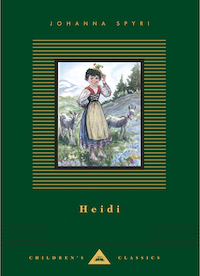
The story of an irrepressible orphan girl in the Swiss Alps, written in 1880–81, has long been one of the most loved and best-selling children's classics in the world.
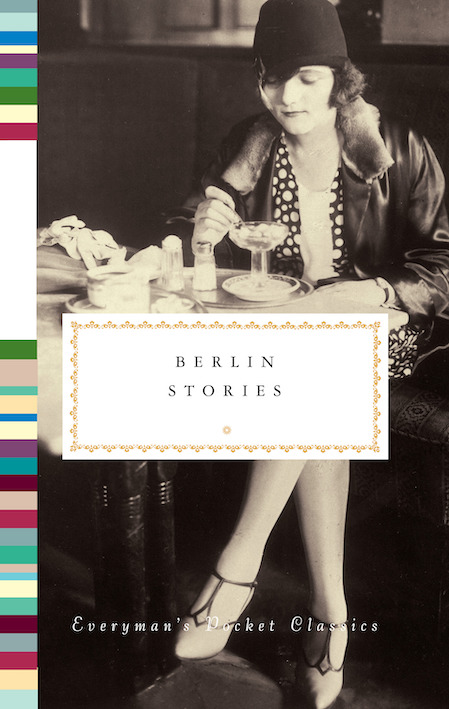
Berlin, in the words of Philip Hensher, editor of this anthology, 'has always been a city of desperate modernity', both in terms of urban architecture – largely a creation of the progressive 19th-century, laid waste by World War II – and in ways of living and behaving. As early as the 1920s it was the gay capital of Europe; the Communist East/free West barrier presented unique problems for a divided population; and in the 1990s, in the aftermath of reunification, the cheap, run-down city became a vibrant centre for creative artists. 'The sense of making it up as you go along is never far away in Berlin.' The stories in this volume are the product of this series of multiple rebirths from the viewpoint of both insiders and outsiders. From pre-1914 there are contributions from Theodor Fontane and Robert Walser; from the Weimar Republic, Alexander Döblin, Vladimir Nabokov, Erich Kästner, Ernst Haffner, Irmgeud Keun and Christopher Isherwood; from the Third Reich, Thomas Wolfe, Hans Fallada and Heinz Rein; from the Cold War era, Peter Schneider, Thomas Brussig, Len Deighton, Christa Wolf and Ian McEwan; from post-reunification, Günter Grass, Wladimir Kaminer, Chloe Aridjis, Uwe Timm, Kevin Barry, Jean-Philippe Toussaint and Jenny Erpenbeck.

- Follow
Everyman’s Library on Twitter

- View the Everyman’s Library Facebook page